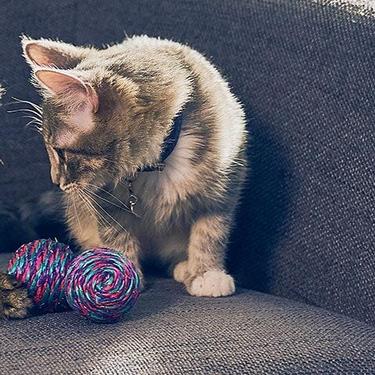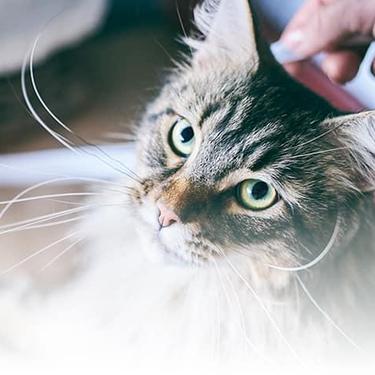
-
Find the right food for your petTake this quiz to see which food may be the best for your furry friend.Find the right food for your petTake this quiz to see which food may be the best for your furry friend.Featured products
 Puppy Food
Puppy FoodHill's Science Plan Puppy Multipack Wet Dog Food with Chicken & Beef are complete premium pet foods for growing puppies from weaning until 1 year old and for pregnant and nursing dogs. Your puppy will love these deliciously smooth and savoury minced loaves, formulated for balanced nutrition and overall health.
Shop Now Adult Wet Dog Food with Beef
Adult Wet Dog Food with BeefHill's Science Plan Adult Multipack Wet Dog Food with Chicken, Beef & Turkey are complete premium pet foods for adult dogs from 1 year. Your dog will love these deliciously smooth and savoury minced loaves, formulated for balanced nutrition and overall health.
Shop Now Mature Adult Dog Food
Mature Adult Dog FoodHill's Science Plan Mature Adult Multipack Wet Dog Food with Chicken & Beef are complete premium pet foods for mature adult dogs from 7 years. Your dog will love these deliciously smooth and savoury minced loaves, formulated to deliver the appropriate amount of energy to support the needs of adult dogs.
Shop NowFeatured products Mature Adult Wet Cat Food with Chicken
Mature Adult Wet Cat Food with Chicken
Tender chicken chunks in gravy for mature adult cats. Made with easy-to-digest ingredients, high-quality protein for lean muscle maintenance and antioxidant vitamins C+E for optimal health.
Shop Now Light Adult Multipack Wet Cat Food with Chicken & Ocean Fish
Light Adult Multipack Wet Cat Food with Chicken & Ocean FishTender chicken chunks in gravy for cats, with L-carnitine and fewer calories for ideal weight management. Packed with high-quality protein, omega-6s, and vitamin E for shiny fur and healthy skin.
Shop Now Adult Multipack Wet Cat Food with Beef, Ocean Fish & Chicken
Adult Multipack Wet Cat Food with Beef, Ocean Fish & ChickenTender chunks in gravy for cats, with high-quality protein to maintain lean muscle. With vitamin E and omega-3s & -6s for healthy skin and balanced minerals to support healthy vital organs.
Shop Now -
Dog
- Dog Tips & Articles
-
Health Category
- Weight
- Food & Environmental Sensitivities
- Urinary
- Digestive
- Joint
- Kidney
-
Life Stage
- Puppy Nutrition
- Adult Nutrition
- Senior Nutrition
Cat- Cat Tips & Articles
-
Health Category
- Weight
- Skin & Food Sensitivities
- Urinary
- Digestive
- Kidney
-
Life Stage
- Kitten Nutrition
- Adult Nutrition
Featured articles Show some love with wet foods: a great choice for pets with health issues
Show some love with wet foods: a great choice for pets with health issuesShow some love with wet foods: a great choice for pets with health issues.
Read More The Incredible Science Behind Your Pet's Microbiome
The Incredible Science Behind Your Pet's MicrobiomeLearn what your pet's microbiome is, how it contributes to your pet's gut and overall health, and why nutrition is important in maintaining healthy microbiomes.
Read More The Right Diet For Your Pet
The Right Diet For Your PetIn people, the right diet is very important. If you are eating the wrong way for your metabolism, activity level, age and lifestyle you could end up with health issues.
Read More -


It's no secret that pet parents often don't get a good night's sleep. Feline parents, in particular, are vulnerable to sleepless nights because of nocturnal cat behaviour.
Why are cats nocturnal? A cat's biological clock is set to "active" throughout the night, and this instinct manifests itself in a variety of ways, including wanting to play, asking for a midnight snack or pushing you around so they can get a better spot on the bed, usually on your pillow!
But there are a few ways to manage your cat's nighttime antics, which is great news for everyone in the sleep-deprived family.
Playtime Equals Sleepytime
If you're a new cat parent, you may be surprised at how often kittens sleep during the day. It's true that most cats spend most of their day sleeping, whether their humans are home or not. PetMD’s advice to help your cat burn off the energy stored up all day is by actively engaging your furry friend for about 20 to 30 minutes when you arrive home. They'll love the attention, and you'll have a nice welcome-home activity. Keep in mind that they might just take another power nap and be ready to rock again just as you've snuggled up in your cozy bed. So it's a good idea to spend another 20 to 30 minutes before bedtime.

Another way to keep your kitty happy is to provide outlets for independent play. For example, open the curtains or blinds in an unoccupied room so that they can survey the nightlife in your neighbourhood. The Animal Humane Society notes that you can even incorporate playtime into your nightly TV session! You'll want to avoid any toys that make noise; otherwise, you'll hear that jingly ball rolling up and down all night.
Bedtime Dinner
As seasoned pet parents can tell you, if you get up and feed your cat during the middle of the night once, they'll expect you to do it every single night. If you've already started feeding your cat at 2 am, to keep them quiet, don't despair–you can phase it out over time.


Tasty Tips
One way to do this is to give your cat dinner close to bedtime, preferably before your rigorous pre-bed playdate. To avoid overfeeding your cat, be sure to portion out meals appropriately during the day. Follow the directions provided on the cat food package, and if you have questions about your cat's feeding schedule and behaviour, ask a veterinarian.
Ignorance Is Bliss
Have you ever closed your bedroom door in hopes your feline friend would seek other ways to burn off their midnight energy? If so, you've already discovered that cats view a closed door as a challenge and will bang against it until it opens. (A note to new pet parents: Cats don't give up. They will spend hours trying to open that door.) Cats that are especially determined will run at full speed and hurl themselves at the door.
You may be tempted to command your furry companion to go away, but resistance is futile. For a cat, any attention is good attention. Any reaction from you means that you're ready to play, but never ever discipline their nocturnal cat behaviour. Your cat is just doing what comes naturally. Your best bet is to ignore your cat completely. It's not easy, but eventually, they’ll saunter off for other entertainment.
It may take a few nights before your kitty realises you won't react to nighttime demands. With patience and dedication, you and your cat can look forward to restful nights, and you both will have more energy to play during the day!
Image source: Flickr


Christine O'Brien is a writer, mom, and long-time cat parent whose two Russian Blues rule the house. Her work also appears in Care.com, What to Expect, and Fit Pregnancy, where she writes about pets, pregnancy, and family life. Find and follow her on Instagram and Twitter @brovelliobrien.
Related products

Tender chicken chunks in gravy for mature adult cats. Made with easy-to-digest ingredients, high-quality protein for lean muscle maintenance and antioxidant vitamins C+E for optimal health.

Tender chunks in gravy for cats, with high-quality protein to maintain lean muscle. With vitamin E and omega-3s & -6s for healthy skin and balanced minerals to support healthy vital organs.

Tender chicken chunks in gravy for cats, with L-carnitine and fewer calories for ideal weight management. Packed with high-quality protein, omega-6s, and vitamin E for shiny fur and healthy skin.

Related articles

Kittens grow a lot in their first year, so it is important to provide them with the proper nutrients early, so they grow up healthy and strong. Learn more.

There are three common ways to feed a cat. Each way has its advantages and disadvantages.

Learn how to make homemade cat treats that are healthy for your pet with this recipe from Hills Pet Nutrition.

From essential vitamins & minerals to different types of meat, learn what to look for when choosing the best cat food for your feline.

Put your cat on a diet without them knowing
Our low calorie formula helps you control your cat's weight. It's packed with high-quality protein for building lean muscles, and made with purposeful ingredients for a flavourful, nutritious meal. Clinically proven antioxidants, Vitamin C+E, help promote a healthy immune system.
Put your cat on a diet without them knowing
Our low calorie formula helps you control your cat's weight. It's packed with high-quality protein for building lean muscles, and made with purposeful ingredients for a flavourful, nutritious meal. Clinically proven antioxidants, Vitamin C+E, help promote a healthy immune system.

